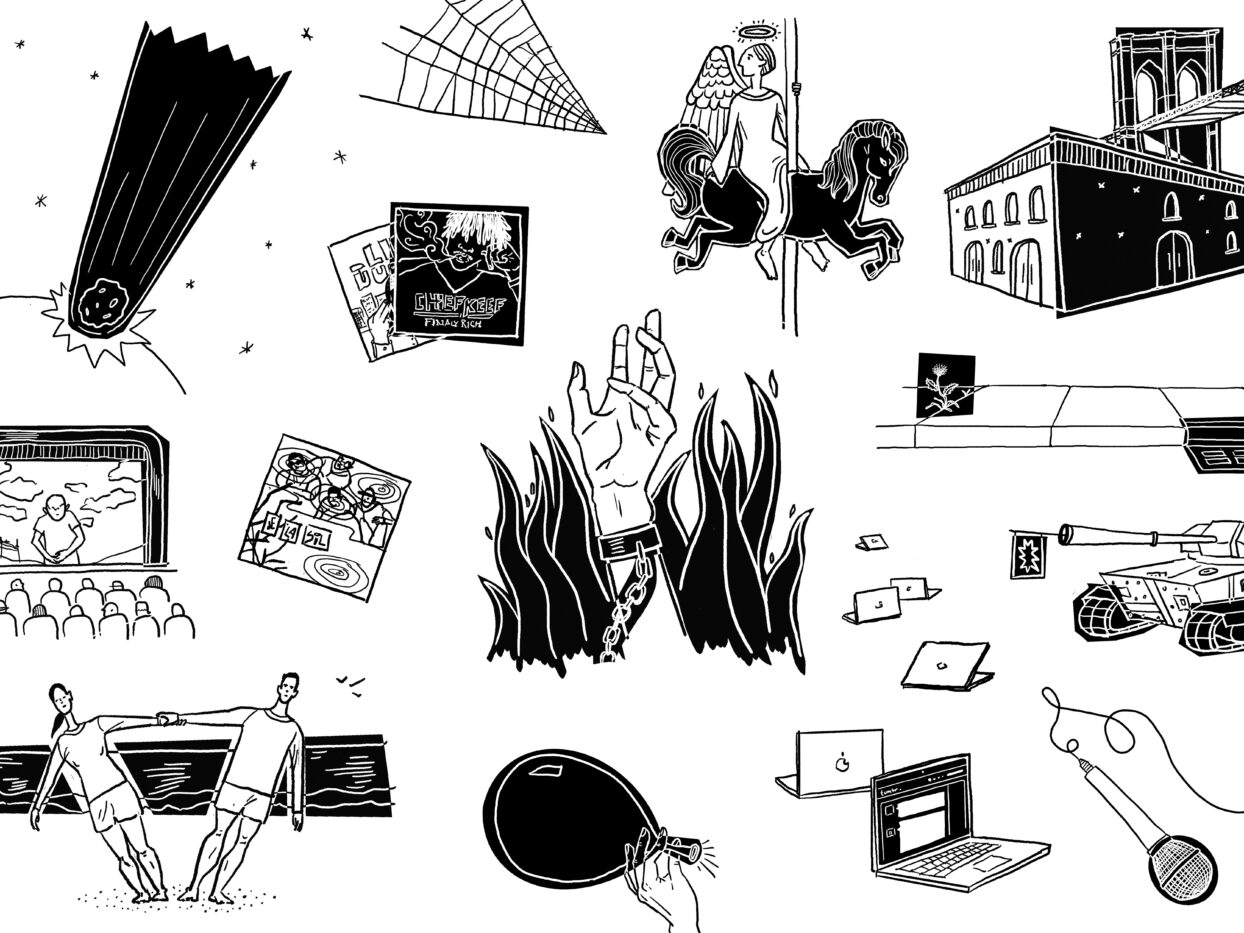
Image by Ivy Sanders Schneider

Image by Ivy Sanders Schneider
It’s commonplace to note that sociopolitical upheaval and artistic experimentation often flourish side by side. But today — despite an alleged “polycrisis” — new modes of cultural production don’t seem to be emerging. Three years after the start of the Covid-19 pandemic and the subsequent George Floyd rebellion, the arts seem stagnant and stubbornly centralized: franchise fare dominates at the box office; literary output is hampered by monopolized publishers; even the obsession with so-called nepo babies suggests a cultural bloodline without disruption. The internet, meanwhile, tends to both homogenize art and silo audiences by algorithm. We’ve begun to wonder if we’re overlooking experimental movements, or if they’re going extinct.
For Issue Ten, we asked artists and thinkers across disciplines — novelists, sculptors, composers, dancers, critics — to reflect on the current state of the avant-garde. What’s to blame for the lack of a coherent movement? If the avant-garde is dead, what killed it — and what’s been lost along the way? In politics, nothing seems to surprise us anymore. In art, can we still be shocked? Should we?